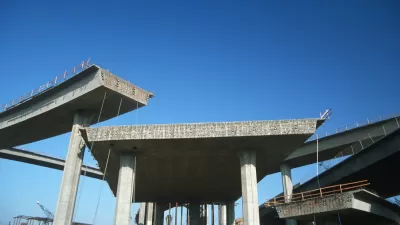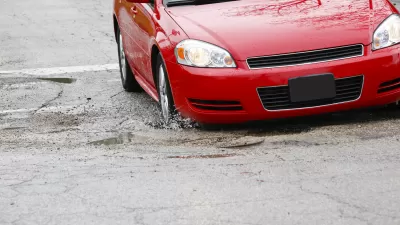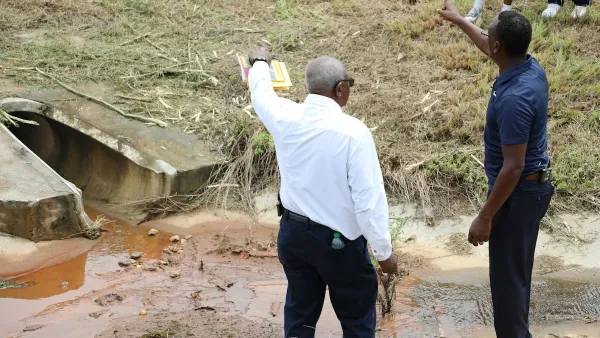Congress needs to do more than fund the status quo in its next infrastructure bill, whenever that long-promised bill becomes a reality.

Democratic leadership is negotiating with President Trump over a $2 trillion-dollar infrastructure bill, but exactly what makes it into the bill will have a tremendous impact on the environment and the country's ability to maintain its transportation resources. While those negotiations have again stalled, the eventual outcome of this bill will have a huge impact. "The country must prioritize measures that shift commuters toward transit while fixing decaying bridges and essential roadways that are a public safety risk if neglected any longer, said the authors of the U.S. PIRG Education Fund study," Aaron Short reports.
The authors of that study write that rather than focusing on expensive to build and maintain auto infrastructure, the country must spend on more cycling, transit and walking. "In the past, lawmakers didn’t worry that building an interstate highway system could lead to sprawling neighborhoods, polluted air that triggers asthma attacks, and a dependency on fossil fuels that we’ve been unable to kick for more than a half century," Short argues. Beyond active transit the author’s of the study argue for a greater focus on water infrastructure, arguing that the issue's importance is only likely to grow.
FULL STORY: There’s a Right Way to Spend Trillions on Infrastructure

Planetizen Federal Action Tracker
A weekly monitor of how Trump’s orders and actions are impacting planners and planning in America.

Chicago’s Ghost Rails
Just beneath the surface of the modern city lie the remnants of its expansive early 20th-century streetcar system.

San Antonio and Austin are Fusing Into one Massive Megaregion
The region spanning the two central Texas cities is growing fast, posing challenges for local infrastructure and water supplies.

Since Zion's Shuttles Went Electric “The Smog is Gone”
Visitors to Zion National Park can enjoy the canyon via the nation’s first fully electric park shuttle system.

Trump Distributing DOT Safety Funds at 1/10 Rate of Biden
Funds for Safe Streets and other transportation safety and equity programs are being held up by administrative reviews and conflicts with the Trump administration’s priorities.

German Cities Subsidize Taxis for Women Amid Wave of Violence
Free or low-cost taxi rides can help women navigate cities more safely, but critics say the programs don't address the root causes of violence against women.
Urban Design for Planners 1: Software Tools
This six-course series explores essential urban design concepts using open source software and equips planners with the tools they need to participate fully in the urban design process.
Planning for Universal Design
Learn the tools for implementing Universal Design in planning regulations.
planning NEXT
Appalachian Highlands Housing Partners
Mpact (founded as Rail~Volution)
City of Camden Redevelopment Agency
City of Astoria
City of Portland
City of Laramie





























